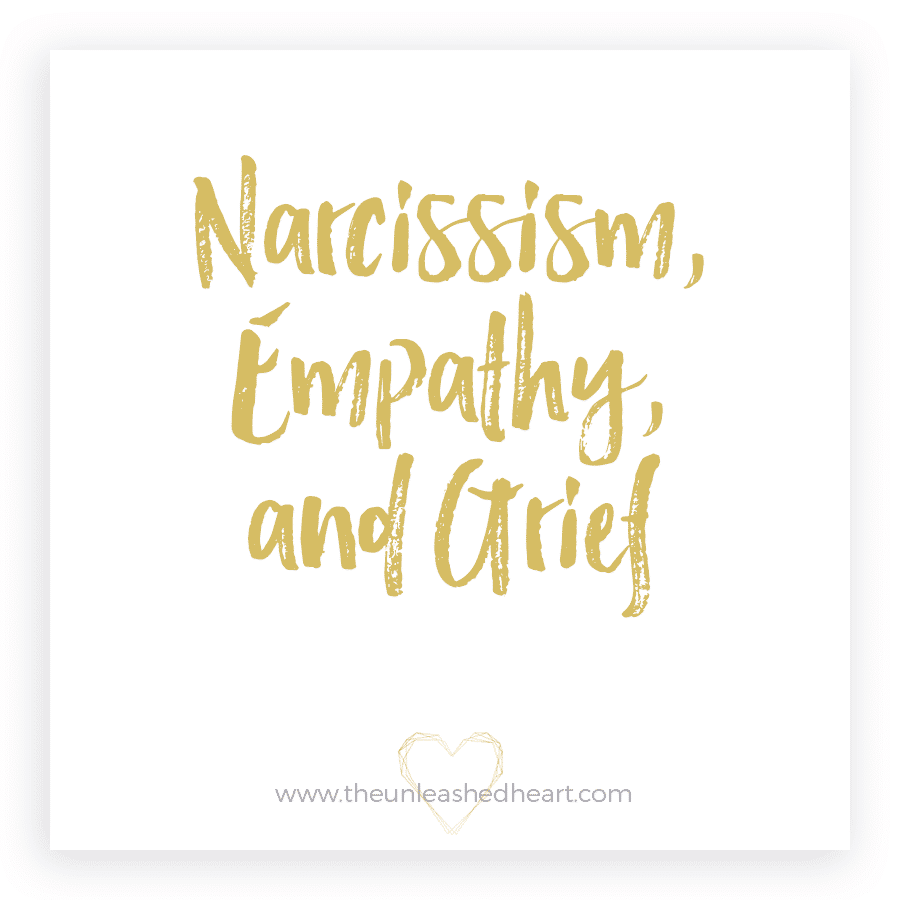A narcissist, according to Merriam-Webster, is an extremely self-centered person with an exaggerated sense of self-importance.
Empathy, also according to Merriam-Webster, is defined as the action of understanding, being aware of, being sensitive to, and vicariously experiencing the feelings, thoughts, and experiences of another in either the past or present without having the feelings, thoughts, and experience fully communicated in an objectively explicit manner.
According to the same resource, grief is deep and poignant distress caused by or as if by bereavement. However, The Grief Recovery Institute defines grief as the normal and natural reaction to a loss of any kind. It is also anything we wish would be different, better, or more, and the loss of hopes, dreams, and expectations.
The Narcissist in Your Life
Where does narcissism come in, then? If you have relationships with people (who doesn’t?), you may know of a narcissist or have one in your life. And in my experience, it’s grief-causing to understand that the narcissist in your life will always fit the bill for grief-like feelings around the relationship you wish would be different, better or more. Grief also exists in knowing that there is a loss of hopes, dreams, and expectations for the relationship.
I don’t know if a narcissist can change. They will always have a different view of themselves than how others perceive them. How do you get someone to change their perception of themselves? In short, I don’t know that you can. That’s self-awareness, I believe, that has to come from within themselves. Only you have the power to change yourself for the better and work through all of the feelings that arise. Unless, however, you cut them out of your life completely. Even then, the grief-like feelings don’t go away on their own by cutting the person out of your life. There will still be emotional incompleteness between that person and the relationship.
To better understand why you may be experiencing grief while in a relationship with a narcissist, read the following excerpt from this Psychology Today blog post:
Since an empathic response often involves an unconscious assessment of one’s vulnerability to experiencing shame, the narcissist’s inhibition of an empathic response (“unwillingness”) may simply be self-protective. This also points to the affective limitations that accompany narcissistic personality disorder. Narcissists do not consciously feel a lack of empathy or experience an unwillingness to empathize. Instead, in many situations where one might expect them to empathize, their limitations activate a sense of helplessness—an imagined vulnerability— followed by scripted responses to shame, such as shame-fear (fear of loss of face) or shame-rage (protection from some trauma or imagined trauma from the past).
Thus, if you are involved with someone whose behaviors are motivated by shame-avoidance, your task is to protect yourself since they will be consciously or unconsciously unwilling to empathize with you. Commonly, heartbroken people explain their relationship rupture as due to their former partner’s “lack of empathy,” concluding they had been in love with a narcissist. However, it is possible to respond to our own shame by attacking the other who could not provide what we needed in the first place, given their restricted emotional freedom. Instead, by accepting our disappointment and misdirection, and looking inside ourselves, we can learn because we have the emotional resources and willingness that enable us to do so.
And applying the last sentence to my life is what has given me the emotional freedom I desired that I saw came so naturally to the narcissist in my life. It should come as no surprise that GRM (the grief recovery method) provided me with new tools and knowledge to do just that.
I highly recommend reading the entire article. And, if you suspect someone in your life is a narcissist or not (or are perhaps curious where you fall on the scale), check out this quiz. For funsies, I took it and applied the questions to myself. I scored a 6, which falls into self-sufficiency: a trait that refers to how much you rely on others versus your abilities to meet your needs in life. I feel this is a very accurate result for me. I learned very early on in my life how to be self-sufficient. It’s also a trait that makes it hard for me to ask for help – as a life-long griever and otherwise.
A Solution
Of all of the people in the world, with all of the variety of traits, characteristics, and personalities we encounter in our lifetime, it’s vital to have emotional intelligence and awareness about ourselves. This self-knowledge empowers us to work through whatever emotional disturbance we bump up against that would otherwise have the potential to derail and emotionally block us in our lives.
Grief recovery has given me this emotional freedom, and it can provide it for you as well. After you learn what I have learned, and after you’ve worked through the hardest emotional loss of your life, you will view every other relationship (and person) in your life differently, with clearer goggles of self-awareness and emotional intelligence, as previously mentioned. You will also have the tools and knowledge to see those people and relationships for who and what they are – another griever who hasn’t addressed their emotional disturbances.

P.S. Do you want to work through a narcissist relationship that’s been a source of grief for you? Get in touch here.

